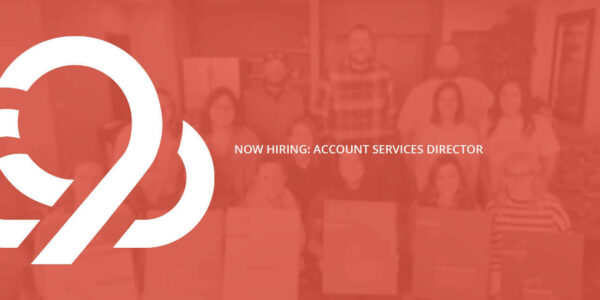
A History of Facebook Advertising Panics (And How iOS 14 Ranks Among Them)
Facebook advertising is a rollercoaster, and it’s a ride that isn’t ending soon.
Since its first ads were launched in 2007, Facebook has been no stranger to privacy scandals, scrutiny over company policies, or litigation from governments.
The latest drama is over Apple’s iOS 14 prompt which will allow users to opt out of being tracked by Facebook. As a result, advertisers like us have had to adjust our own strategies and technical set-ups. But this isn’t our first ride on this rollercoaster. We’re standing confident in our work on Facebook since they need us (and you) to stay profitable.
Every month, Facebook earns an estimated $9 billion from ads served by businesses throughout the world – including our humble little agency here in South Dakota.
As a publicly traded company, Facebook’s protects this revenue, which relies on the needs and willingness of businesses just like yours.
So when Apple announced that they were going to protect iOS users from (what they perceive as) invasive targeting on Facebook, our agency was reminded of the long, winding path of Facebook advertising changes.
Here’s how our agency has rode the Facebook rollercoaster throughout the years.

2012: Facebook Acquires Instagram for $1 Billion
Billed as one of Facebook’s most successful business moves, this acquisition created a headache for digital marketers. Facebook was on the verge of becoming a publicly-traded company, and the acquisition fueled its ambitions to drive revenue with advertising.
But for many businesses who were trying to improve their digital marketing in this era, Instagram was a tough nut to crack.
Instagram was not designed for business. As opposed to the cleanly-organized business pages on Facebook, each business’ Instagram account was tied to one email address.
In the years since 2012, Facebook has added plenty of business-minded functionality to its Instagram app, which is now integrated seamlessly into Facebook’s Business Manager tool.
To place ads on Instagram, users only have to select one little checkbox in their Facebook ad campaigns. That’s really it.
Today, 9 Clouds helps businesses connect with Instagram users within their Facebook ad campaigns.

2016: Russia Uses Facebook Ads to Interfere With a U.S. Election
Political ads have always been a hot button issue for Facebook, which refuses to fact check and ban false claims. In fact, the issue is still unresolved as of this writing.
In the 2016 election, Russia used social media to spread propaganda in an effort to change the outcome of the election. A Kremlin-linked organization called the Internet Research Agency spent more than $100,000 on pro-Trump, anti-Clinton Facebook ads.
These Russian ads perpetuated political polarization with which most Americans have become all too familiar. They also called into question the security of information being used for ad targeting at Facebook.
Facebook received backlash, and businesses – including our own clients – wondered if they should begin shifting their ad spend elsewhere.
As the dust settled after the election, Facebook took better control over who could advertise on its platform. In a resulting policy change, Facebook now verifies pages before they can run political ads, and those ads are marked as political so that they are less likely to mislead users.

2018: The Cambridge Analytica Scandal
This was arguably the worst year to be a Facebook executive.
In early 2018, data from around 87 million Facebook users was found on the servers of Cambridge Analytica – a political research firm. The data from this leak was used to manipulate the U.S. elections in 2018 as well as the Brexit vote in the U.K.
Facebook CEO Mark Zuckerberg ended up testifying in front of the U.S. Senate about this data privacy gaffe. The company apologized, and the FTC fined them $5 billion.
As a result of this drama – and under pressure from new data regulations in Europe – Facebook imposed several restrictions on the data which many advertisers had long used for much less nefarious purposes.
Our agency was able to overcome these challenges by identifying and applying alternatives for Facebook targeting. After looking to Canada for inspiration, we continued showing a high return on investment for our Facebook advertising clients.

2019: Facebook Settles Civil Rights Lawsuits by Limiting Ad Targeting Options
On the tails of the Cambridge Analytica scandal, Facebook found itself neck-deep in discrimination lawsuits accusing it of benefiting from discriminatory ads.
Several groups accused Facebook of allowing ads for housing, employment, and financial credit that discriminated against racial groups, genders, and age groups.
After years of fighting against these accusations, Facebook finally changed its targeting capabilities for businesses in those three areas: housing, employment, and credit.
9 Clouds specializes in digital marketing for automotive dealerships, who are now required to self-categorize in the credit category.
Because of this change, many auto dealers found themselves without the granular targeting control they once had on Facebook.
Later in 2019, after testing the special ads category and the related special ads audiences, 9 Clouds found that what was initially seen as a lion of a change turned out to be a harmless lamb.

2020: COVID-19 Tests Facebook’s “Free Speech” Stance
When un-masked anti-lockdown protestors rallied at various state capitols in April 2020, Facebook’s non-censorship came into question. Since many of these protestors used Facebook’s groups and messaging to organize their unsafe rallies and to spread misinformation about COVID-19, why didn’t Facebook do more to prevent it?
Once again, Facebook tiptoed onto the slippery slope of censorship by removing posts that violated state and local laws regarding COVID-19 precautions.
And, once again, advertisers were impacted as Facebook began regulating misinformation regarding vaccines.
This time, instead of making every advertiser comply with a new policy (see 2018) Facebook simply began blocking ads that spread misinformation about vaccines.
Throughout 2020, 9 Clouds helped its clients with insightful research on the pandemic’s impact on digital advertising.

2021: Apple Takes a Stand for Privacy
Starting in early 2021, Apple announced a forthcoming policy which restricts targeting on Facebook and other apps.
When it goes into effect, iOS 14 asked Facebook users if they want to allow the app to track them on other websites. When users opt out, Facebook’s advertisers are no longer be able to track or retarget them – at least not in the same way.
For example, if one of these opted-out iOS users clicks on your ad and then completes a purchase on your website, the event will be untraced and unattributed to your ad. Because of this, Facebook rolled out an alternative called Aggregated Event Measurement, which came into effect after the iOS prompt happened.

2022 – Panic at the Marketplace
Remember how scared we were in 2019 with the introduction of Special Ad Audiences? Well, after extensive research and testing, we found out they were highly effective. However, in October of 2022, we said “see ya later” to these Special Ad Audiences (insert mild panic).
What did this mean for businesses who fall under the Special Ad Audiences category? It was time to get creative again. Even though lookalike targeting was limited, we found success in targeting interests and broad locations.
Our automotive industry clients also lost the ability to post vehicle ads on Facebook Marketplace. While this was another scary change, we were able to identify a few best practices for using the features Facebook still allows for the automotive industry.
The Rollercoaster Dips and Dives Forward
When the inevitable scandal arises, you might ask yourself – should I be spending my advertising budget somewhere else?
Our answer is: Not yet.
Throughout every storm, Facebook still has 2.8 billion active monthly users who are not giving up the platform any time soon. Plus, with revenue and growth to uphold, Facebook will still find a way to help advertisers reach their own goals.
Digital marketing can sometimes feel like a scary theme park, but 9 Clouds is here to help you find success.
If you’re not sure if your digital presence is up to snuff, or if you want to make sure you’re prepared for Apple’s iOS restrictions, contact us for a complimentary one-on-one digital marketing assessment.
Get Your Digital Assessment »


![Human vs AI A/B Test [Spoiler Alert: Humans Win!]](https://9clouds.com/wp-content/uploads/2024/02/Volvo-dealership-1-600x388.png)


